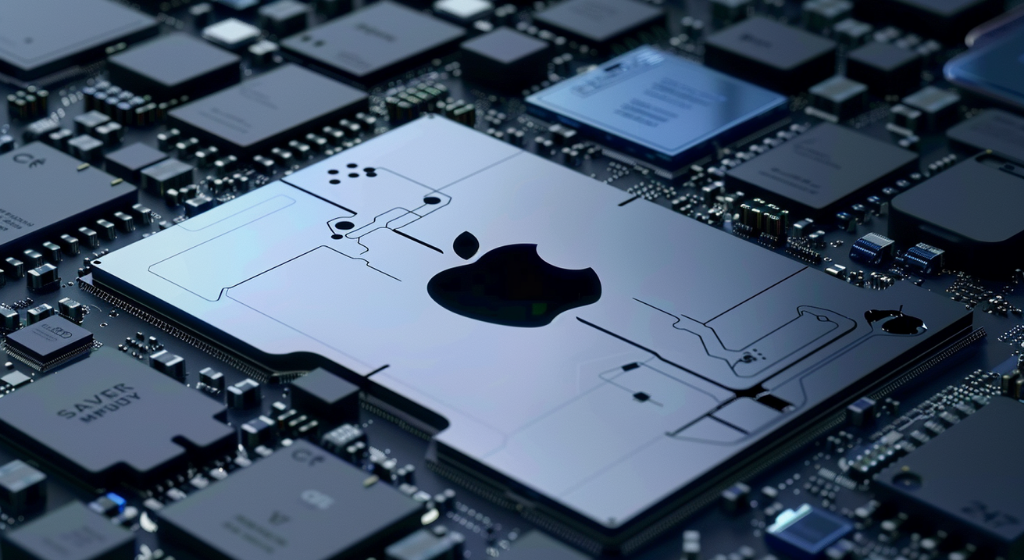
Apple aims to launch its first M4-powered iMacs, MacBook Pros, Mac minis, MacBook Airs, Mac Studio, and Mac Pro by the end of 2024 and into early 2025, with its success potentially hinging on the AI capabilities revealed at the June WWDC, amidst economic pressures from rising inflation and oil prices. (Source: Image by RR)
Apple’s M4 Chip, Details to Be Revealed in June, Could Set New Standards in AI Personal Computing
Apple has recently been in the spotlight with its announcement of the M4 chip, set to power its next generation of Macs. The M4, anticipated to be released in various models by the end of 2024, promises significant enhancements in AI capabilities aimed at making devices “AI-native.” This shift comes as Apple attempts to revitalize its product line in response to a 27% decline in Mac sales last year, amidst stiff competition from other tech giants rolling out AI-enhanced PCs. The tech community, particularly followers of Bloomberg’s Matt Gurman, await further details, which are expected to be revealed at Apple’s WWDC in June.
Despite the innovative leap towards integrating advanced AI features, Apple faces significant challenges in a market that has shown relentless competition and shifting consumer preferences. As reported in linkedin.com, the M4 chip will feature in all Mac variants, including potentially new models like the iMac, MacBook Pro, Mac mini, MacBook Air, Mac Studio, and Mac Pro, codenamed Donan, Brava, and Hidra for their respective market tiers. These enhancements are critical as Apple navigates weakening hardware sales, particularly in China, where geopolitical tensions and local competition are increasingly formidable.
Internationally, Apple’s situation is complicated by broader geopolitical tensions, such as trade restrictions and the U.S. government’s increasing blacklist of Chinese companies, which now includes over 300 entities. These factors could stifle Apple’s sales further, particularly in China, which is a vital market for the tech giant. Moreover, the global AI chip market is becoming more competitive, with Chinese firms rapidly innovating and gaining ground on U.S. companies. This environment challenges Apple not only to advance its technology but also to adapt its business strategies robustly.
Looking forward, Apple’s WWDC presents an opportunity for the company to showcase its advancements in AI and reclaim consumer interest. The M4 chip’s introduction is set to test Apple’s market strength in an era where AI integration becomes a standard expectation for new devices. Additionally, Apple’s need to impress with its AI capabilities could determine its competitive edge against rivals like Google, Amazon, and Microsoft, who are also aggressively investing in AI. As Apple plans to roll out its AI features, the technology world watches keenly to see if this will be enough to reverse the downtrend in its sales and set a new course for the future.
read more at linkedin.com







Leave A Comment